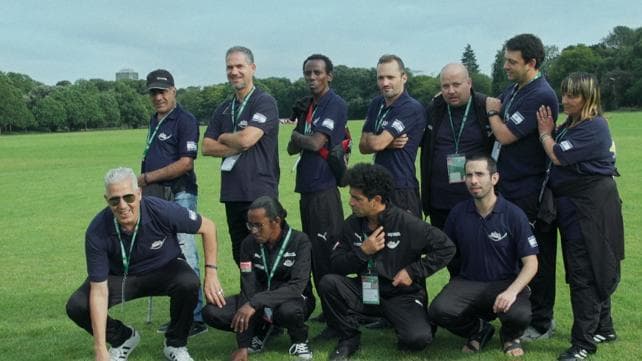Bitter irony
Israel's Homeless Soccer Team Banned from World Championship in Norway
In a crushing blow to hopes of sporting inclusion, Israel's homeless soccer squad finds itself sidelined from Oslo's summer tournament amid controversial comparisons to conflict zones.

Tournament organizers have informed Israel's homeless soccer team that they cannot participate in this summer's tournament in Oslo, citing that "Israel is in a conflict zone like Russia and Ukraine." The team's founder expressed disappointment that this announcement came on the same day as the ceasefire declaration.
Uri Shoham, founder of "Home Field" organization and the national homeless soccer team, told Kan Bet radio: "There's an international body called Homeless World Cup, with about 70 member countries, hosting tournaments in different locations each year. We previously participated in Norway in 2017, but the climate was different then. We're part of a growing trend of boycotts against Israel, and it's particularly sad that this happens even on the day a ceasefire was announced."
The organization has sent a response letter and involved Israel's Ministry of Culture and Sports and the Foreign Ministry in an attempt to reverse the decision. "We hope we can change the situation and convince them not to play politics with our participants, who come from society's most vulnerable population," Shoham said.
The Israeli organization, established about 10 years ago, provides homeless individuals in Israel with rehabilitation opportunities through a model that uses sports as a therapeutic tool for social integration.
What is Homeless Soccer?
The Homeless World Cup is an annual international football (soccer) tournament that brings together teams of people who have experienced homelessness and social marginalization from around the world. The tournament was founded in 2003 by Mel Young and Harald Schmied, who believed in the power of football to change lives.
Key aspects of the tournament:
The tournament has shown significant positive impact on participants' lives, with many players going on to find stable housing, employment, education, or recovery from addiction. Beyond the competition itself, the Homeless World Cup Foundation works year-round with partner organizations in different countries to support social inclusion through football.